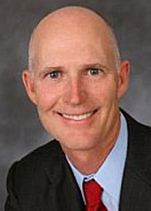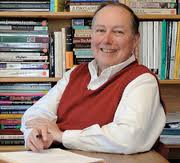
Sugarman: "contrary to today’s conventional wisdom, allowing religious schools to become charter schools is not clearly a violation of the 'establishment clause.' "
The connection between charter schools and religion continues to generate the occasional headline, with the most recent coming last week when the New York Times carried a Texas Tribune story about Texas charter schools leasing space from churches. Some of those interviewed objected to the entanglement of the schools with the churches and the “benefits” that churches were gaining from these arrangements.
I think these concerns are misguided, given the state of charter facilities funding and the facts on the ground about most of these relationships. At the same time, I think the legal door is open in some states for the possibility of faith-based charter schools, which would be a step forward for school choice and education reform. Let me explain.
1. The Present
At the moment, in all states that permit charter schools as part of their public school system, charter schools may not be religious schools. Put simply, this means that religion may be no more a part of these schools than it is in other (traditional) public schools. School prayer is prohibited. Students and teachers may not be selected on the basis of their or their family’s religious beliefs. The curriculum must be secular.
Finding a suitable place to locate charter schools is a widespread problem. Those who run charter schools have to pay for their facilities from the same funds that also pay for all the academic and other financial obligations, whereas public school facilities are financed separately, usually through general obligation bonds, paid by property owners in the school district until the facility is fully paid for. Many charter schools are in leased premises, unlike traditional public schools. This generally puts charter schools at a substantial financial disadvantage compared to their other public school counterparts.
In some places, as here in California, the local school district is supposed to offer suitable facilities to charter school operators, but in practice that often is a hollow requirement as the place or places offered are locations that are actually quite unsuitable. Sometimes school district leaders have nothing better to offer; other times, it seems they deliberately offer what they know will be rejected because they are hostile to charter schools taking away “their” pupils. Many instances of protracted litigation have occurred before charter schools have been able to secure facility agreements from school districts.
As a result, it is natural that charter school operators frequently turn to churches as potential landlords. (more…)
 What does Rick Scott want? Orlando Sentinel columnist Beth Kassab on the possibility of Tony Bennett coming to Florida: “Indiana's loss could be Florida's gain. Then again, it will all depend on whether the state board and the governor are looking for somebody to push Florida forward or somebody to soften Scott's image on education reform. There are worrisome signs that Scott is looking for the latter.” Two knocks don’t make a pattern, but this is the second time in a month Scott has been criticized from the reform side.
What does Rick Scott want? Orlando Sentinel columnist Beth Kassab on the possibility of Tony Bennett coming to Florida: “Indiana's loss could be Florida's gain. Then again, it will all depend on whether the state board and the governor are looking for somebody to push Florida forward or somebody to soften Scott's image on education reform. There are worrisome signs that Scott is looking for the latter.” Two knocks don’t make a pattern, but this is the second time in a month Scott has been criticized from the reform side.
Joining the chorus. Miami Herald columnist Leonard Pitts says the state Board of Education lowered the bar for minority students when it adopted short-term achievement goals that called for steeper rates of improvement for those students.
Tax credit scholarships and religious schools. The Orlando Sentinel takes a look at a long-established fact - the majority of students receiving tax-credit scholarships attend religious schools – and critics recycle myths about funding and accountability.
State settles with Christian college. From the News Service of Florida: “Settling a federal lawsuit that involved questions about the school's "secular purpose," state education officials will allow students at a Central Florida Christian college to be eligible for a popular grant program.” Complaint here. Settlement here.
Charter school analysis. News outlets continue to highlight UCF Professor Stanley D. Smith’s analysis, which finds that as a group, charter schools in Florida under perform traditional public schools. Smith writes an op-ed for the Tampa Bay Times. The St. Augustine Record uses his findings as a basis for this editorial. (more…)
 The belief that a society or a nation can be unified - its barriers of religion, class, and race broken down - by bringing its children together in common schools that express a lowest-common-denominator vision of national life is a persistent theme throughout the 19th and 20th centuries, and has especially been evoked against schools created by immigrant groups to teach their children within their own religious tradition.
The belief that a society or a nation can be unified - its barriers of religion, class, and race broken down - by bringing its children together in common schools that express a lowest-common-denominator vision of national life is a persistent theme throughout the 19th and 20th centuries, and has especially been evoked against schools created by immigrant groups to teach their children within their own religious tradition.
Critics like Jeff Spinner-Halev counter that pluralism is a positive social good, and allows individuals freedom to shape their own lives in terms of real choices:
A relentless diversity flattens the pluralism of society. … A pluralistic society is not a place where every institution mirrors the ethnic, racial, and gender composition of society. A pluralistic society has different kinds of groups with different kinds of memberships. … This kind of society will offer its members more choices than one that is diverse “all the way down.” … the irony of a diversity that is taken too far: eventually it makes society more homogeneous rather than heterogeneous. ... A society that has different institutions with different audiences, customers, clienteles, or students will be more pluralistic than a society where all the institutions are composed of the same people.
Advocates for an educational system that encourages non-government schooling argue that freedom in educational provision and the pluralism of the education provided requires the flourishing of alternatives to the schools operated by government, but only if these alternative schools are not compelled – or seduced – into adopting a pédagogie d’état which makes them essentially similar to government schools.
For the sake of freedom of conscience and of expression – itself founded on the principle of tolerance as well as ideological and philosophical principles of non-discrimination – no educational monopoly by the state can be justified within the democratic order. Freedom of conscience and expression are meaningless if children are subjected to mandatory indoctrination in a particular viewpoint selected by the state. (more…)
Editor’s note: Critics often suggest that expanding school choice to include private, faith-based schools will erode democracy. But noted school choice expert Charles Glenn says the evidence shows the opposite - that students are more likely to become engaged citizens if they attend schools where they feel a sense of belonging.
 Jan De Groof and I are just finishing up the new edition, in four volumes, of "Balancing Freedom, Autonomy, and Accountability in Education," with chapters on 60 countries by experts from those countries. The first volume will consist of essays by a number of authors, each looking at one theme across the many nations. I just finished my contribution, on government-prescribed values in curriculum (it's attached below), and thought I would share a somewhat surprising finding:
Jan De Groof and I are just finishing up the new edition, in four volumes, of "Balancing Freedom, Autonomy, and Accountability in Education," with chapters on 60 countries by experts from those countries. The first volume will consist of essays by a number of authors, each looking at one theme across the many nations. I just finished my contribution, on government-prescribed values in curriculum (it's attached below), and thought I would share a somewhat surprising finding:
They seem to make very little difference.
It is very common, I found, for governments to prescribe in detail how schools should promote citizenship and human rights. It is also common (though not universal) for governments to make provision for religious education in public schools, usually with an opt-out provision and sometimes with a choice between different religious traditions. When I compared these requirements with the results of the International Civic and Citizenship Education Study of 38 countries, however, I found little indication that they had an effect on the attitudes of the adolescents surveyed.
To get specific: In the Czech Republic, “at secondary school considerable attention may be given to topics such as citizenship, European citizenship, globalization, environmentalism and multiculturalism.” In Malta, there are unusually extensive curriculum requirements, insisting that “schools should serve as a testing ground for democracy in keeping with the declarations and treaties signed by Malta in the past, and with the constitutional obligations of the country. As key institutions within civil society, schools should foster among their students respect for others, and for the right of other people to enjoy freedom, peace, security and the benefits of a society governed by law and order. In a society that is increasingly becoming multi-cultural, the educational system should enable students to develop a sense of respect, co-operation, and solidarity among cultures.” In Latvia, schools are expected to foster “the development of a responsible, tolerant and democratic citizen of the state and Europe, as well as instilling the opinion that human life is the highest value.”
But countries that articulate such standards are not necessarily those in which human rights are most consistently respected. The ICCS survey found eighth graders in the Czech Republic, Latvia and Malta were considerably less likely than the average of other countries to express support for equal rights for ethnic and racial groups.
The same disconnect is evident when we look at countries like England that mandate religious education in public schools and yet have far lower rates of religious belief and practice than do the United States, which forbid it.
In short, the prescription, by government, of value-laden curriculum objectives does not seem effective, and indeed I argue in my essay that government control or intrusive oversight can work against its intended purpose, by cultivating a passivity on the part of teachers and students alike that is anything but a model of engaged citizenship.
Let me explain that a little. (more…)
Editor’s note: America isn’t the only place where school choice raises questions about not only education, but pluralism, citizenship and social integration. Noted school choice expert Charles Glenn, a Boston University professor and American Center for School Choice associate, writes that European countries with far more evolved choice systems continue to wrestle with these issues – but have no reason to fear faith-based schools.
 Early in June I was one of the speakers at a conference on educational freedom in The Netherlands and Flanders (the Dutch-speaking part of Belgium). It is no exaggeration to say these are the poster children of “school choice,” the two areas where its implications have been worked out most fully over the past two centuries (see my Contrasting Models of State and School, Continuum, 2011). Today, upwards of two-thirds of pupils in this area of some 23 million inhabitants attend non-government schools with full public funding.
Early in June I was one of the speakers at a conference on educational freedom in The Netherlands and Flanders (the Dutch-speaking part of Belgium). It is no exaggeration to say these are the poster children of “school choice,” the two areas where its implications have been worked out most fully over the past two centuries (see my Contrasting Models of State and School, Continuum, 2011). Today, upwards of two-thirds of pupils in this area of some 23 million inhabitants attend non-government schools with full public funding.
Much of the discussion among the participants was about the details of how schools have been able – or not – to preserve their independence in the face of government regulation. I will not try to summarize that discussion here, except to note that as always the devil is in the details and we can learn a great deal from the experience over many decades of the interaction between schools seeking to maintain a distinctive religious or pedagogical character and government officials seeking to impose common standards. (The updated 2012 edition of Balancing Freedom, Autonomy, and Accountability in Education will include, in four volumes, detailed descriptions of how this relationship plays out in nearly 60 countries, most of them written by leading education law experts from each country, including these two.)
My own contribution at the conference was to raise openly what is beginning to be debated in Belgium and The Netherlands: is educational freedom still relevant, given changing circumstances? Is there still a need for schools not owned and operated by government and promoting worldviews that are in contrast with that of the societal majority? And, is the growing societal pluralism created by immigration an argument for or against such schools? Some, in fact, have claimed that the justification for non-public schools no longer exists because (a) some of them have ceased offering a truly distinctive education as a result of secularization, and (b) to the extent that they actually distinctive, they are a barrier to the social integration required in the face of the growing presence of Muslims in Western Europe.
My paper confronted head-on the widespread fear, among European elites, of strongly-held religious views, and argued that in fact “communities of conviction” make an essential contribution to the health of civil society. I cited research on faith-based schools in the United States to show they have by no means had a divisive effect or made their students unfit for active and positive citizenship. (more…)